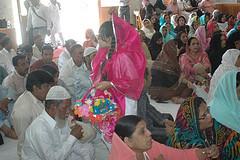 The dynamism of the market demands of the companies more incentive the attraction, maintenance and development of talentos. The areas of TD& (Work, Development and Education) acquires vital importance front the demands of the domestic market and external, to providing the training for the development of multipurpose employees. The concept of Educao Corporativa (EC) appeared of the necessity to adapt the process of TD& the strategical necessities of the organizations of century XX (TIMTEO, 2009). Thus it appears as form to raise the period of training of enterprise competitiveness, by means of the development, of the installation and the consolidation of enterprise critical abilities and human beings. The organizations, mainly of the age of the information, characterized for the massivo use of technology, more invest each time in qualification for its employees.
The dynamism of the market demands of the companies more incentive the attraction, maintenance and development of talentos. The areas of TD& (Work, Development and Education) acquires vital importance front the demands of the domestic market and external, to providing the training for the development of multipurpose employees. The concept of Educao Corporativa (EC) appeared of the necessity to adapt the process of TD& the strategical necessities of the organizations of century XX (TIMTEO, 2009). Thus it appears as form to raise the period of training of enterprise competitiveness, by means of the development, of the installation and the consolidation of enterprise critical abilities and human beings. The organizations, mainly of the age of the information, characterized for the massivo use of technology, more invest each time in qualification for its employees.
The investment, longs for, also, development of the employee, providing the generation of new knowledge, with reflected right-handers on the personal and organizacional development. The programs of TD& E, associates, the Corporative Education, demands of the great organizations investments that will return for the companies through financial return and development from staff. Of this form, the use of Systems of Corporative Education, using itself the proposals of the programs of TD& E, objective to institutionalize a culture of continuous learning, tied with the most important organizacionais strategies. 2 TRAINING, DEVELOPMENT AND EDUCATION? TD& the word development, in its traditional meaning, of the Latin, considers an emphasis in the external changes, in order to produce resulted that they will reflect, future, in the progress of a person (ZANETTI, 2002, apud PANCERI, 2007). Soon, to develop itself is to move in the long run, preparing the individual to assume better positions and longing for a more prosperous future. Training, of Latin trahre, assumes the meaning of: to be capable to make some thing, that never made before, using systematic methods, allowing to make it future, without the assistance of who teaches.